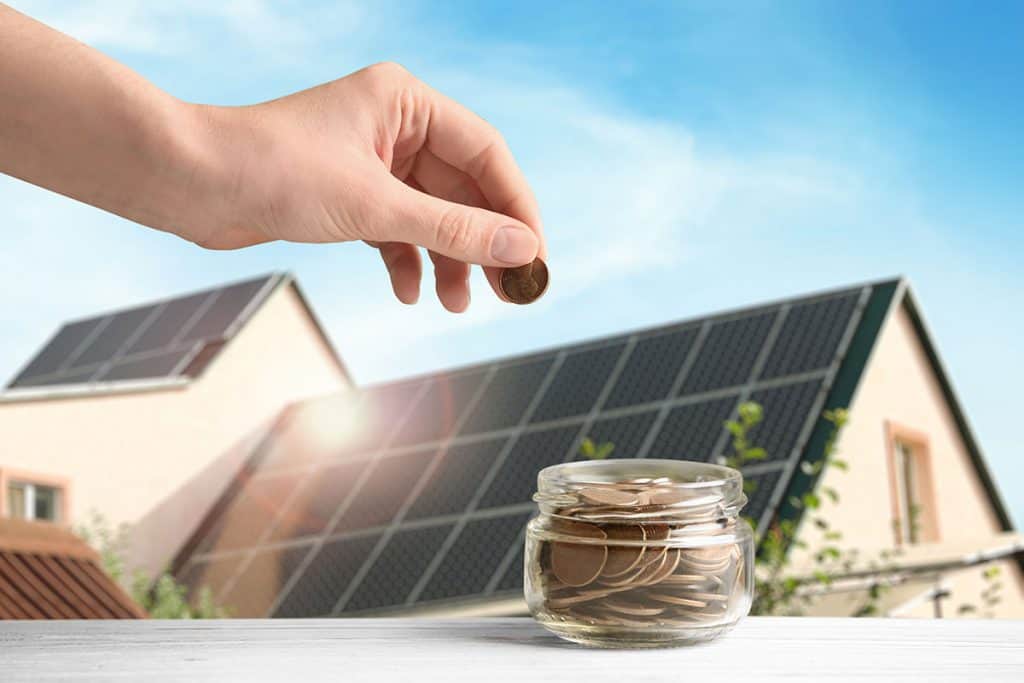The Cost of Not Going Solar
June 8, 2024

The Cost of Not Going Solar: The initial cost is simply one component of a financial analysis of solar energy. Traditional energy sources come with a lot of apparent environmental and societal consequences, but in this piece we will take a somewhat different approach, concentrating on the financial impact of going solar vs. not.
Let’s start by discussing your most recent utility bill. Depending on how much electricity you consume, you pay a different amount every month and every year. The money accumulates over time (slowly or fast), yet after paying this fee for 1, 5, 10, or more years, you have nothing to show for your money. The electricity you utilize is almost like a rental. You never receive this money back, just like when you rent a house or an apartment. Your utility payment in this case is a sunk cost of having a home or business. The price of not switching to solar is this.
Therefore, if you don’t have solar, you will eventually incur costs from your power bill. Easy enough. Let’s compound that expense by, say, ten years. You could then purchase your own electricity. You can eliminate this sunk cost and increase your equity in a financial asset by exchanging your electric bill for a solar array. You can take control of your energy with solar.
The energy continues even after the panels have paid for themselves. The money you would have spent on electric bills is now yours to retain and can be used for other things. A trip with the family, home or business upgrades, possibly an electric car… (which, by the way, you can power with your solar system’s free electricity!)
Also Read: best solar installers near me
Things to consider when calculating the utility cost of not going solar
Energy consumption
Knowing your average monthly energy consumption can help you estimate the cost of not going solar. The more energy you consume, the higher your utility bills will be.
Utility rates:
Utility rates can vary depending on your location, time of day, and season. Make sure to consider the current rates in your area and how they might change over time.
Inflation
Energy costs tend to increase over time, so it’s important to take into account the effects of inflation when calculating the cost of not going solar.
Solar rebates and incentives
There are often solar rebates and incentives available for going solar, so it’s important to factor in any savings you would miss out on by not going solar.
Energy efficiency
Improving your energy efficiency can also help you save on utility costs. Making simple changes, such as switching to LED lights or using a programmable thermostat, can make a big difference in your energy consumption and reduce your utility costs.
By considering these factors, you can get a better understanding of the long-term cost of not going solar and make an informed decision about whether or not solar power is right for you.
Also Read: Reasons Why You Should Use Solar Energy?
The Power of Solar
The power of solar refers to the ability of solar energy to generate electricity and provide clean, renewable energy to homes and businesses. Solar power has a number of benefits, including:
Environmental benefits:
Solar power is a clean and renewable source of energy that does not produce harmful emissions, such as carbon dioxide, that contribute to climate change.
Cost savings
Installing a solar power system can significantly reduce your energy bills, as it allows you to generate your own electricity and reduces your reliance on traditional utilities.
Increased energy independence
By generating your own electricity, you can become more energy independent and reduce your dependence on fossil fuels.
Improved grid stability
Solar power can help stabilize the grid by reducing the demand for energy during peak hours and providing energy during periods of low demand.
Job creation
The solar industry is growing rapidly and is creating new jobs in the fields of manufacturing, installation, and maintenance.
The power of solar lies in its ability to provide clean, renewable energy that can save you money, reduce your carbon footprint, and contribute to a more stable and sustainable energy grid.
With solar, you can transform your energy’s buried cost into an investment that will yield returns for decades. We assist folks in comprehending the expenses, advantages, and timetables associated with their unique aims and ambitions. Contact us right away if owning your electricity appeals to you. We are prepared to assist.